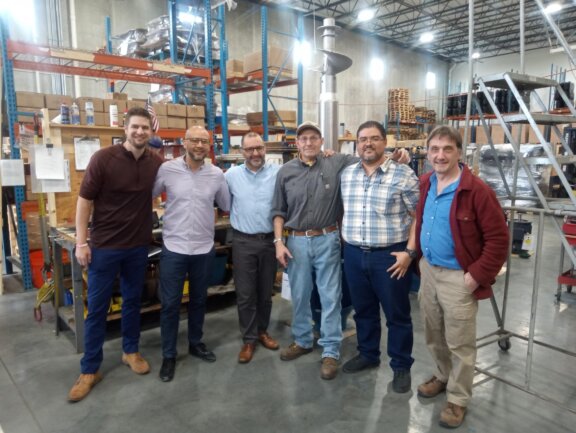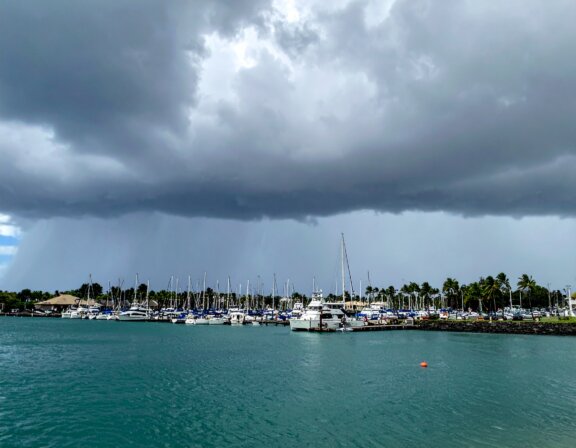Digital Solutions for Decentralized Wastewater, Practically
Written by: Nathan Smith, SVP, Marketing & Lifecycle Leader – Newterra
As the world continues to shift towards decentralized water and wastewater systems, a movement companies like Newterra is well at the heart of, many new benefits are realized, but so too are new challenges. Decentralized wastewater systems’ advantages include localized treatment, reduced infrastructure costs, and enhanced resilience. But amidst this favorable evolution in wastewater treatment, a demographic shift that is impacting numerous industries is simultaneously unfolding. An aging workforce, including in the water and wastewater sector, is having its impact. With 33% of operators eligible for retirement in the next decade according to the EPA, our industry’s “gallons of clean water per individual operator” metric is going to become increasingly less favorable in coming years, as the burden of maintenance and operation falls on an increasingly smaller workforce spread across more systems.
And, much less than a simple headcount issue, retaining system-specific knowledge and expertise will be all but impossible as experienced workers leave the field.
The more decentralized systems proliferate – the greater the number of independent systems handling water and wastewater treatment that exist in the US and Canada – the more operators already overburdened will be forced to deal with the daunting challenge of managing more assets with dwindling resources.
“Digital Monitoring” vs “Intelligence Delivery”
Digital solutions play a pivotal role in addressing these challenges. But simply providing data to operators is not enough; for certain, well-packaged data can streamline analysis and decision making, which is important. But that alone does not address the expertise deficit. The key lies in connecting systems with the intelligence and experience that can scalably offer guidance and intervention to optimize both human and system assets. In part, this may yet come from AI-assisted models. But like many things, AI (still) benefits from a degree of scalability. It may be some time before AI can reliably and cost-effectively support small, decentralized wastewater assets. But digital tools that can deliver the expertise of the engineers who design and build the systems – and thus know best how they operate – to operators in the field when and where that expertise is most needed, that kind of digital tool can act as force multipliers, enabling operators to manage more assets efficiently and effectively.
Critical Roles of Practical Digital Solutions
Enhanced Data Insights and Real-Time Monitoring: Digital solutions provide real-time data and insights into plant operations, allowing for rapid analysis and troubleshooting. By delivering detailed performance data directly to plant managers, engineers, and operators, these tools enable timely decision-making and corrective actions. Additionally, data can be shared with experts who can provide analysis and recommendations, ensuring that operators on the ground have access to the best possible guidance.
Optimization and Predictive Maintenance: Leveraging digital tools, operators can optimize plant conditions to deliver consistent, cost-effective results. These solutions identify latent performance issues and degradation, recommending corrective measures to maintain optimal performance. Predictive maintenance, guided by historical data and real-time trends, helps in scheduling the right maintenance at the right time, thereby avoiding equipment failures and minimizing downtime.
Cost Reduction and Efficiency Improvement: By helping avoid both operator errors and reducing excessive maintenance, digital solutions help in cutting costs and improving process efficiency. They enable remote operations, increasing worker safety and efficiency. Standardized workflows and consistent operational protocols further enhance process efficiency, speeding up analysis and reporting.
Knowledge Retention and Management: One of the critical advantages of digital solutions is their ability to retain and manage operational knowledge. As the workforce ages and new operators take over, having a centralized, updated repository of operational data, drawings, P&ID, and programming updates ensures continuity and prevents knowledge loss. This “one version of the truth” approach helps in avoiding the pitfalls of “brain drain” as experienced operators retire.
Remote Operations and Secure Field Operations: The baseline expectation of “Digital”, digital tools enable secure remote operations, allowing operators to monitor and manage systems from afar. This capability not only enhances operational efficiency but also ensures that expertise can be deployed when and where it’s needed most. Remote monitoring and management reduce the need for on-site presence, which is particularly beneficial in geographically dispersed systems.
Conclusion
Newterra is a leader in decentralized wastewater systems, and our customers and operating partners’ success is integral to our own. As systems like those we design, build, and manufacture become more prevalent, the integration of practical digital solutions is essential for their effective operation. These tools support operators by providing real-time data, enabling predictive maintenance, optimizing plant performance, and retaining critical operational knowledge. By harnessing the power of digital technologies, the water and wastewater sector can overcome the challenges of decentralization while continuing to reap all its many benefits, ensuring sustainable and efficient management of these vital systems and the health and well-being of the many communities they serve.


